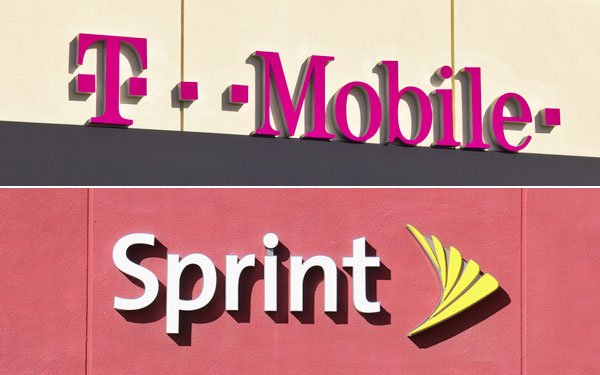
The Justice
Department Friday endorsed T-Mobile's $26 billion acquisition of Sprint, provided the companies divest some assets to satellite provider Dish Network.
The proposed deal, which would position
Dish to enter the wireless market, must be approved by a district court judge.
The Justice Department's proposed settlement would require T-Mobile and Sprint to divest Sprint's pre-paid
businesses, as well as some spectrum assets, to Dish. The deal also imposes conditions aimed at enabling Dish to compete for wireless customers.
Among other terms, T-Mobile must
allow its network to be used by Dish for seven years, during which time Dish will build its own network.
“Today’s settlement will provide Dish with the assets and transitional
services required to become a facilities-based mobile network operator that can provide a full range of mobile wireless services nationwide,” Justice Department antitrust chief Makan Delrahim
stated.
The settlement could face a hurdle in federal court in New York, where attorneys general representing 13 states and the District of Columbia are suing to block the merger on antitrust grounds. New York Attorney General
Letitia James, who is leading the legal effort to prevent the deal, suggested Friday the lawsuit will continue.
“I remain deeply concerned about the T-Mobile/Sprint megamerger & the irreparable harm it will cause to millions across the country,” she tweeted Friday afternoon. “Despite approval from the DOJ, the deal is bad for consumers, innovation and
workers.”
In May, Federal Communications Commission Chairman Ajit Pai blessed the transaction, arguing it will boost 5G deployment and lead to faster mobile broadband in rural parts of
the country.
Pai plans to circulate a draft order approving the merger to other commissioners.
“The commitments made to the FCC by T-Mobile and Sprint to deploy a 5G network that
would cover 99% of the American people, along with the measures outlined in the Department’s consent decree, will advance U.S. leadership in 5G and protect competition,” Pai stated
Friday.
Commissioner Jessica Rosenworcel, one of two Democrats on the FCC, expressed concerns about the deal.
“I remain skeptical that this combination is good for consumers,
good for competition or good for the economy,” she stated Friday. “Before the FCC votes on this new deal, the public should have the opportunity to weigh in and comment. Too much here has
been done behind closed doors.”
As originally proposed, the deal would have left the country with just three major mobile carriers -- Verizon, AT&T and the newly merged
T-Mobile/Sprint -- all roughly the same size. Consumer advocates opposed the original deal, arguing the consolidation would have lead to higher prices for consumers, poorer service and
fewer incentives for the carriers to invest in their networks.
While the Justice Department says the settlement will allow Dish to effectively become a fourth major wireless carrier, critics
remain wary.
“Sprint is a significantly stronger competitor today than a new fourth competitor could be for the foreseeable future,” Phillip Berenbroick, policy director at
Public Knowledge stated Friday. “Consumers will face considerable harm if the marketplace does not develop as the DOJ envisions.”
Avery Gardiner, a senior fellow at the watchdog Center for Democracy & Technology, stated the settlement “goes against decades”of legal
principle.
“The notion that Dish, which has talked of building a wireless network but has been sitting on valuable wireless spectrum for years without doing anything with it, will
promptly restore competition is fanciful," she stated.
Sen. Ed Markey (D-Mass.) adds the Justice Department could have ensured there were four wireless competitors by simply blocking the
deal.
“Instead, they chose a more complicated and uncertain path,” he stated. “I plan to closely monitor this deal because we must ensure consumers have at least four
choices, not three, in the wireless marketplace.”